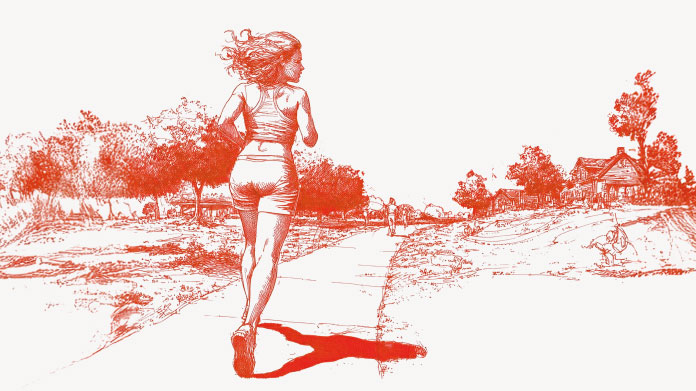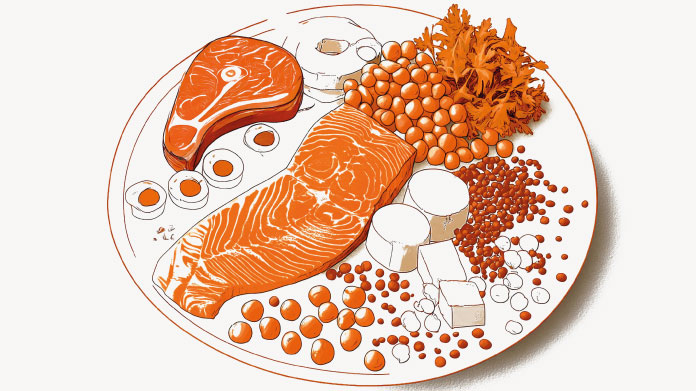5 mistakes to avoid when exercising
Keeping fit, staying in shape, losing weight, gaining muscle … the benefits of exercising and engaging in sports activities are many and varied, provided, that is, the conditions are right.

Mistake n° 1: forgetting to warm up before exercising
Though it’s often neglected, the pre-exercise warm-up is essential both for preventing injury and improving sports performance. Muscles, tendons, joints, the respiratory and cardiovascular systems … it’s important to get the whole body ready for exercise.
In practice: Before taking part in sports or exercise, you should spend 5-10 minutes warming up. This means doing some low-intensity exercise to gently and gradually prepare your body. Sports nutrition research has also led to the development of specific nutritional supplements that help prevent sports injuries. The product Joint Support Formula, for example, helps maintain joint health, while the supplement Tendo-Fix supports flexibility of the tendons.
Mistake n° 2: skipping the recovery phase
As with warming-up, the post-workout recovery phase is often neglected, even though it is vital in order for the body to regenerate properly. It is particularly beneficial for preventing sports-related joint pain and soreness.
In practice: Following any kind of workout, you should gradually reduce your physical activity in what specialists refer to as the active recovery phase. Take 5-10 minutes to complete a series of stretches. To be effective, these should be gentle and should challenge every muscle in the body. To help your body recover after exercise, you can also ‘recharge your batteries’ with the aid of dietary supplements such as PEAK ATP™.
Mistake n° 3: forgetting to rehydrate your body
One of the most common mistakes made by sports enthusiasts is failing to rehydrate. This, despite the fact that exercise results in a significant loss of water which must be replaced through optimal hydration.
In practice: To ensure your body remains well-hydrated, you should drink before, during and after exercise. And here the choice of water can be important. There are special waters available now which are particularly beneficial for active people, such as the benchmark product SuperWater from SuperSmart. This has been conceived to meet the body’s needs for water, provide energy and improve cellular performance.
Mistake n° 4: setting unrealistic goals
What people want to achieve from their sporting activity can vary widely, but their goals must always be realistic. Setting objectives that are impossible to achieve can produce negative consequences such as injury, low morale and lack of motivation …
In practice: Whatever your objectives, it is best to establish a gradual program over several weeks. This allows you to monitor your progress and to celebrate each goal you achieve. It also maintains your motivation and enables you to benefit safely from your sporting activity. To help you reach your objectives more easily, you can boost the benefits of physical activity with nutritional supplementation. Multivitamins, amino acids, fat-burners … many options are available to support your efforts!
Mistake n° 5: not eating a balanced diet
Whether it’s to improve performance or reduce body fat, many sports enthusiasts decide to modify their diet. While such dietary changes can be effective, they can also be counter-productive. Inadequate nutritional intake can leave the body at risk of deficiencies which are harmful to health.
In practice: Even if your goal is to lose weight, engaging in physical activity requires you to eat a healthy, balanced diet. Protein, carbohydrates, fats, minerals, vitamins… the body needs all these nutrients to function properly.
Keywords
2 Days
Order was shipped on time and packaged…Wonderful Jobs!
Order was shipped on time and packaged excellently.
DMHoge
8 Days
great products and prices
great products and prices
Marie
14 Days
Easy to navigate site
Easy to navigate site, had what I was searching for, good price. easy order-check out
James Tucker
20 Days
My skin is clearing up nicely!
Pretty good for my skin so far.
Christian
23 Days
The new packaging is excellent
The new packaging is excellent - finally! No more squashed boxes and torn envelopes.
GORAN
23 Days
Great Product
Great Product
Larry Garrett
28 Days
Quick shipping
Quick shipping; good price. No issues!
Mary McCarty
29 Days
Thr product is very good and is helping…
Thr product is very good and is helping me on my health. Then is always on time
LUGO Luz
32 Days
Buying was fine
Buying was fine. I had problems with the website not recognizing my login info, and had to call to get it fixed. Other than that, everything was good.
David S. Clark
32 Days
Your super maca and super ginseng are…phenomenal
Your super maca and super ginseng are phenomenal supplements that compliment each other when taking them together. Fantastic feeling of well-being and lots of mid day energy without the crash.
Keith Mason
35 Days
I have had amazing results with every…
I have had amazing results with every supplement I've purchased. I am extremely satisfied with this company
kirstin Torres
35 Days
Fine products
Fine products . They are on the leading edge of online supplements. The only issue -so far-is they sometime run out of subscription items.
Jason Argos
37 Days
The ordering process is very user…
The ordering process is very user friendly and the products always come in a timely manner.
CARTER Rhonda
39 Days
The price for Dr
The price for Dr. Pero's AC-11 is reasonable and in line with his views. (my former colleague). Keep it pure.
CAMPBELL Clayton
41 Days
Right on every time.
Right on every time.
Arthur Nicholas




